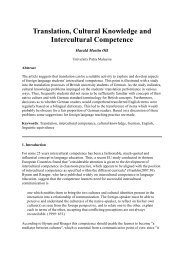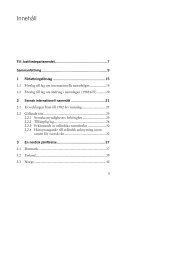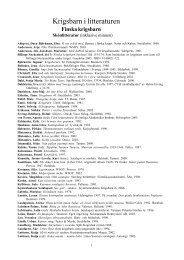Sweden
Sweden
Sweden
Create successful ePaper yourself
Turn your PDF publications into a flip-book with our unique Google optimized e-Paper software.
<strong>Sweden</strong> – a pocket guide 119<br />
Sick pay, sickness benefits<br />
and temporary disability pensions<br />
If you are gainfully employed and fall ill, you receive no<br />
benefits for the first day, which is known as the qualifying<br />
day, karensdag. You then receive sick pay, sjuklön, from your<br />
employer for two weeks. You can be absent from work due<br />
to illness for up to a week without consulting a physician.<br />
If you need to be absent longer, you must obtain a medical<br />
certificate, läkarintyg.<br />
If you are ill for more than two weeks, you receive sickness<br />
benefits, sjukpenning, from the Insurance Office. If<br />
your illness prevents you from working full-time but you<br />
can still work part of the day, you may be eligible for quarter,<br />
half or three-quarter sickness benefits. It is up to your<br />
physician to evaluate the extent of your sick-listing.<br />
Unemployed persons receive sickness benefits as of the<br />
day after the qualifying day.<br />
If you fall ill for a longer period, you may be eligible for<br />
a temporary disability allowance, sjukbidrag. Temporary disability<br />
allowances may be granted to people who have a<br />
long-term illness but will probably be able to start working<br />
again later on. A person who will never be able to work<br />
again due to an illness or functional disability may be entitled<br />
to a disability pension, förtidspension.<br />
A special committee, the social insurance committee,<br />
determines who is entitled to temporary disability allowances<br />
and disability pensions.<br />
Parents’ allowance<br />
Parents’ allowance, föräldrapenning, is available to parents<br />
so that they can stay at home with their children for a certain<br />
period. It is paid out over a total of 450 days, which<br />
can be taken out until the child is eight years old. Thirty<br />
days are reserved for the parent who does not take out the<br />
Money

















